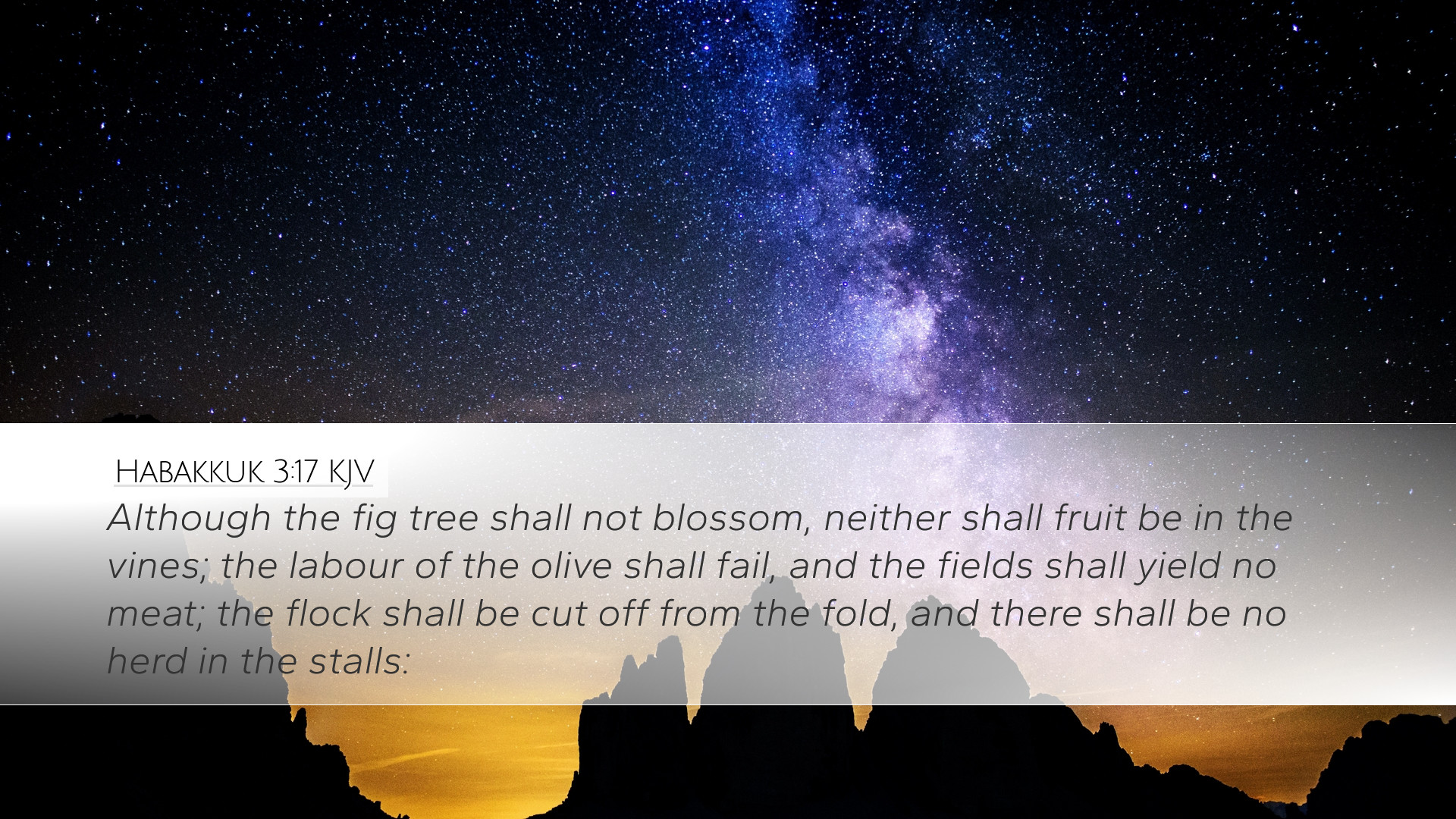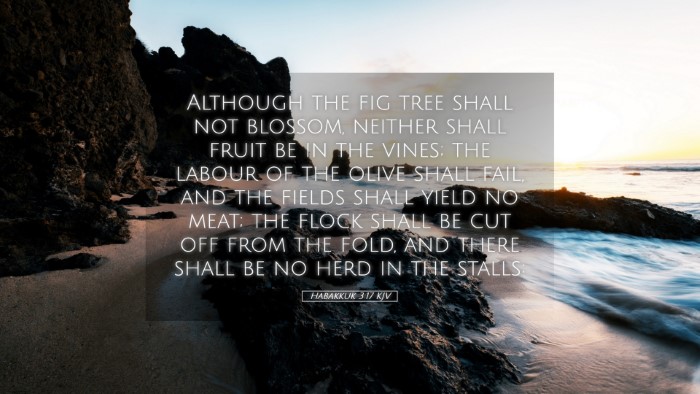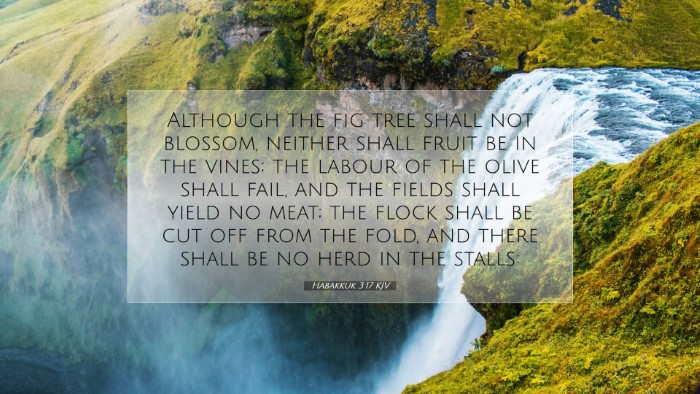Old Testament
Genesis Exodus Leviticus Numbers Deuteronomy Joshua Judges Ruth 1 Samuel 2 Samuel 1 Kings 2 Kings 1 Chronicles 2 Chronicles Ezra Nehemiah Esther Job Psalms Proverbs Ecclesiastes Song of Solomon Isaiah Jeremiah Lamentations Ezekiel Daniel Hosea Joel Amos Obadiah Jonah Micah Nahum Habakkuk Zephaniah Haggai Zechariah MalachiHabakkuk 3:17
Habakkuk 3:17 KJV
Although the fig tree shall not blossom, neither shall fruit be in the vines; the labour of the olive shall fail, and the fields shall yield no meat; the flock shall be cut off from the fold, and there shall be no herd in the stalls:
Habakkuk 3:17 Bible Commentary
Commentary on Habakkuk 3:17
Habakkuk 3:17 states:
"Although the fig tree shall not blossom, neither shall fruit be in the vines; the labor of the olive shall fail, and the fields shall yield no meat; the flock shall be cut off from the fold, and there shall be no herd in the stalls:"
This verse encapsulates a powerful theological and emotional reflection from the prophet Habakkuk in which he declares a profound response to impending calamity. The verse presents a stark picture of desolation and loss, utilizing agricultural imagery to communicate a deep sense of despair.
Contextual Overview
To grasp the full weight of Habakkuk 3:17, it is essential to consider its context. Habakkuk, a prophet in the late seventh century BCE, questioned God's justice amid the moral decay of Judah and the impending Babylonian invasion. His dialogue with God reveals a struggle between faith and despair, a theme particularly relevant to pastoral ministry and theological reflection today.
Theological Insights
Habakkuk 3:17 serves as a declaration of faith in the face of devastation. The prophet does not deny the reality of suffering but confronts it head-on, reminding readers that faith can exist even in moments of apparent abandonment by the Divine.
1. Recognition of Loss
According to Matthew Henry, the imagery of the fig tree that does not blossom speaks to the sharp disappointment of unmet expectations. He emphasizes that the absence of fruit signifies a broader spiritual barrenness. The fig tree, a symbol of prosperity and blessing in Israel, becomes a poignant metaphor for the trials faced by the faithful.
2. Acknowledgment of Divine Sovereignty
Adam Clarke points out that the prophet’s acknowledgment of empty barns and barren fields is not merely a lament but an acknowledgment of God’s sovereign will. This reflection yields a profound understanding that God may allow suffering as part of His divine plan. Clarke highlights the importance of recognizing God's authority even when circumstances are dire.
3. Central Theme of Faith
Albert Barnes interprets the conclusion of Habakkuk 3, noting that despite overwhelming loss, the heart of the prophet remains steadfast in faith. This central theme is crucial for theologians and pastors as it illustrates that true faith is often tested in hardship. Habakkuk's faith is revolutionary; he resolves to rejoice in God despite overwhelming evidence to the contrary.
Spiritual Application
The applications of Habakkuk 3:17 permeate several areas of faith and ministry:
- Faith Amidst Suffering: Encouraging congregations to maintain their trust in God during trials is essential. Habakkuk models this for us, emphasizing that faith is not merely about external circumstances but an internal conviction.
- Perspective on Wealth and Provision: This passage prompts a reevaluation of what it means to be blessed. Material abundance is not the ultimate measure of God’s favor, as indicated by the desolate imagery employed by the prophet.
- The Assurance of Hope: Overall, Habakkuk challenges pastors to instill a hope that transcends present suffering. Even in barrenness, the faithful can rejoice because their ultimate source of joy is God Himself.
Conclusion
Habakkuk 3:17 stands as a powerful testament to the complexities of faith. The rich imagery and emotional depth of the text invite pastors, students, and theologians to reflect on their own experiences of suffering and to find hope and joy in God’s unwavering presence. Despite circumstances that suggest abandonment, God remains a source of joy, strength, and salvation. The commentary from public domain resources harmonizes to articulate a nuanced understanding of faith amidst adversity that resonates deeply with the Christian experience today.


